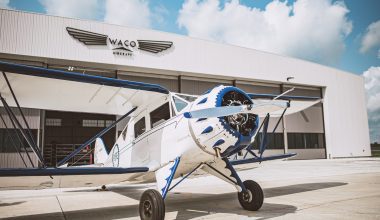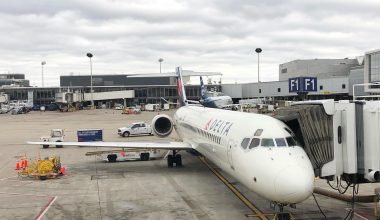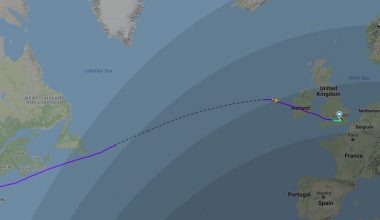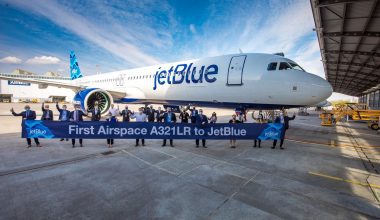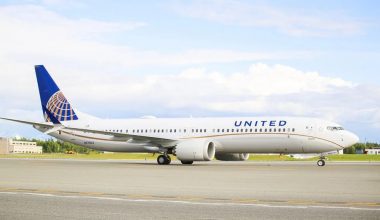With significant growth in passenger air traffic over the years, thousands of flights are taking off and landing every day worldwide. The sheer number of flights and large numbers of people passing through airports daily make modern air travel vulnerable to terrorist attacks because of the high concentration of people in one place. Many countries, especially after September 11, 2001 attacks, have toughened their security measures to ensure the safety of passengers and property onboard the aircraft. In the US, the Federal Air Marshal Service (FAMS), under the supervision of the Transportation Security Administration (TSA), works proactively to mitigate threats involving the US transportation system. As the name suggests, FAMS is composed of Air Marshal-the highly trained and dedicated counter-terrorist agent on board a commercial aircraft to counter aircraft hijackings and protect the flying public.
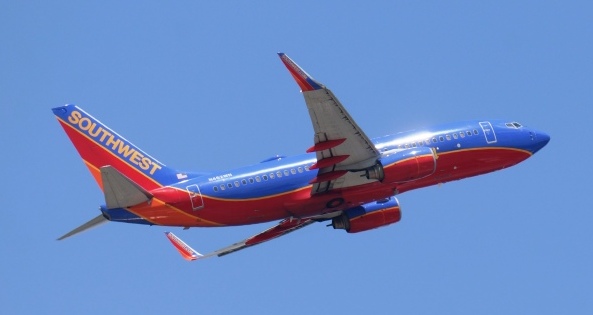
Who is an air marshal?
An air marshal or sky marshal is an armed federal law enforcement officer responsible for assessing, addressing, and mitigating several potential risks and threats to transportation and travelers as part of the TSA mission. A federal air marshal is critical in protecting passengers and crew members from terrorist attacks, aircraft piracy, and other crimes on board civil aircraft.
Air marshals are highly skilled aviation security professionals who undergo intensive specialized training, including investigative techniques, criminal terrorist behavior recognition, firearms proficiency, close-quarters combat, defense tactics, marksmanship, etc., to secure the commercial airline industry, protecting the flying public in domestic and international flights against any hostile acts.
Air marshals are touted as quiet professionals in light of the secretive nature of their jobs. They are the group of undercover officers who mostly remain anonymous while on the aircraft to better ensure flight safety. Owing to the confidentiality of their occupation, they prefer to remain incognito to identify suspicious individuals and prevent criminal activity. Once aboard, they may identify themselves to crew members of the aircraft and tell the crew to notify them in the event of unusual happenings.
Also Read: India’s Air Marshal increase surveillance on Kathmandu-bound flights
Dressed in plain clothing, they ride on passenger flights, blend in with other onboard passengers, examine every person they come in contact with, check for hidden weapons in potential hiding places inside the aircraft, and serve as deterrents on civilian aircraft. Air Marshal is an important figure in the government’s homeland security initiative, the first defense against any crimes in the skies. He/she coordinates with several investigative task forces and concerned agencies to cover a variety of law enforcement-related functions and provides uniquely skilled, multifaceted resources for national security priorities.
Former US president John F. Kennedy introduced TSA, Federal Air Marshal Service, in the early 1960s to combat airplane hijackings and provide in-flight security. Highly dedicated to maintaining and ensuring America’s aviation safety, the air marshal operation is running successfully and recently marked 60 years in March 2022.
Purpose of Air Marshal
In the history of air travel, the 9/11 attack is the most widely recognized terrorist attack, where 2,996 people lost their lives in a series of coordinated suicide terrorist attacks by the militant Islamic extremist network al-Qaeda. Since this deadly act in September 2001, the US government has driven exponential expansion in air marshal operations to actively monitor passenger safety during flights and protect traveling citizens by detecting and preventing criminal activity.
Here are some of the purposes of an air marshal:
- To protect the traveling public on passenger flights against the risk of criminal violence
- To ensure aircraft and national transport security
- To detect, deter and defeat any hostile acts that occur during flights
- To identify suspicious persons, make arrests, and respond to any threats that occur
- To provide security to the nation’s transportation system by addressing and mitigating potentially suspicious activity in the air.
- Collaborate with law enforcement agencies and conduct investigations to keep the commercial airline industry safe and secure against terrorism, aircraft hijackings, and other criminal activities
Demanding nature of the air marshal profession
Responsible for protecting airline passengers and crew on board civil aircraft, an air marshal must endure high levels of pressure and be constantly aware of the surrounding events. He/she must evaluate the environment and prepare for unforeseen threatening scenarios. It’s not a cup of tea for everyone to pursue the job of responding to violent acts and proactively fighting terrorism. Depending on the circumstances, they may be deployed onboard flights on as little as an hour’s notice.
Air marshals rely heavily on training to tackle violent attacks and protect the skies. They are good fighters, accurate with firearms, and skillfully use hand-to-hand combat techniques in close quarters with no backup. Furthermore, air marshals are sharpshooters-they hold the highest standards of marksmanship in federal law enforcement and possess flawless shooting skills to apply on a crowded plane if needed.
Air marshals should develop a sixth sense of criminal and terrorist behaviors and prepare themselves for life-and-death situations. They must be accustomed to frequent travel and get a sense of what normal passenger activity is. As legal enforcement agents, they are, most air marshals come from law enforcement or military background.
Is there any air marshal on every flight?
Following the terrorist attacks of September 11, 2001, the air marshal program expanded rapidly. Currently, FAMS has hired, trained, and activated thousands of air marshals and the missions they fly in a month are more than those in the program’s entire history before those deadly attacks.
According to the reports, an air marshal flies 5 hours a day, 80 hours (15 days) a month, and 900 hours (181 days) in a year. So, is there any air marshal on every flight? The answer is no. As more than 40,000 flights operate in the US on any given day, air marshals can’t be on every commercial flight. Only 5% of commercial flights have air marshals in them. The exact figure of domestic and international flight missions or even the exact number of federal air marshals is unknown and deemed sensitive security information by TSA.
The presence of air marshals on domestic US flights is higher than on international flights. On the other hand, while domestic flights consist of only one or two air marshals, up to four air marshals are assigned to an international flight. Meanwhile, air marshals have the authority to be deployed on any flight across the US. As per the nature of their occupation, they may have to fly at high-risk locations to keep passengers and crew safe from potential threats while in the air.
Not every commercial flight has air marshals because deploying them requires significant finances. These high-profile professionals earn around $3300 per flight and an annual salary of around $70000. Assigning air marshals on every flight that runs in US airspace is not cost-effective. As skies become safer and more time passes with no terrorist attacks, the budget allocated for the air marshal program may wane.
Air marshal qualifications
To establish a career as a federal air marshal, it is essential to meet certain qualifications, which are listed below:
- A US citizen or national with a valid driver’s license
- Must have a minimum age of 21 years and not cross 37 years
- Hold at least an undergraduate degree from an accredited university in a related field (e.g., bachelor’s degree in criminal justice)
- Possess a minimum of 3 years of general experience and one year of specialized work experience equivalent to the FV-G level. The related areas of experience may include criminal investigations, inspection regarding aviation laws and regulations, aviation security-related policy formation or implementation or security risk assessment, etc.;
- Be able to
- Gain and maintain a high-profile security clearance
- Satisfy physical, health, and medical requirements
- Pass drug screening, medical exams, and other assessment tests
- Complete a rigorous training program
- Carry a firearm
- Travel frequently, even to high-risk areas
- Satisfy the requirements of the Lautenberg Amendment, which includes no prior record of malice
- Take permanent or long-term temporary assignments.
The Federal Air Marshal hiring process is very intense as candidates must meet the aforementioned air marshal qualifications and undergo a rigorous assessment process. Once the hiring process is over, the selected air marshals must receive seven-week basic law enforcement course training at the Federal Law Enforcement Training Center in New Mexico. After completing the first round of training around the fundamentals of law enforcement, there will be follow-on training at the William J. Hughes Technical Center in New Jersey, which covers the subjects and critical scenarios that Air Marshals may encounter on the job. Air marshals learn specialized skills for the tasks they will have to carry out in the field, such as marksmanship, defensive tactics, firearm proficiency, emergency medical assistance, etc. Furthermore, this round of training also teaches the basics of flying to the candidates to handle the plane in case of incapacitation the pilot. Upon completing training, air marshals will begin their mission out of 21 different FAM bases across the US.

